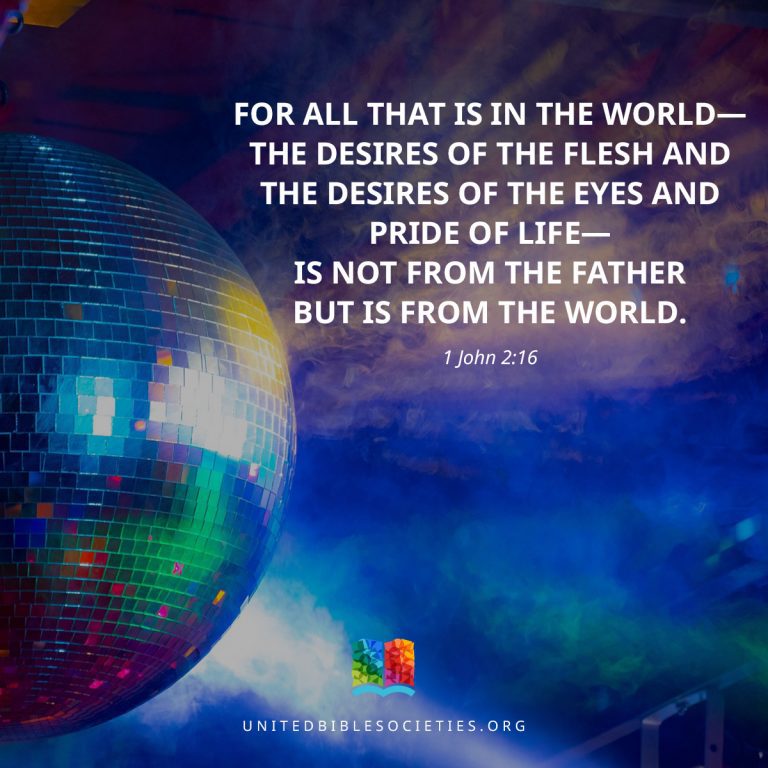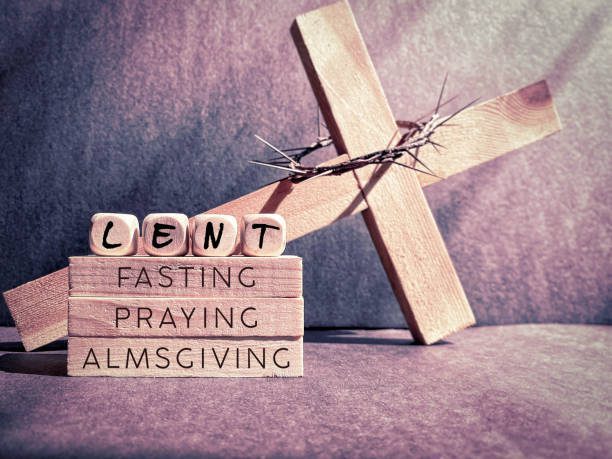
When you think of a successful businesswoman, what comes to mind? Maybe someone who is independent, hardworking, and respected. Now, imagine someone like that but also deeply committed to God. That’s Lydia, a business-savvy, God-fearing woman who played a major role in the early church.
Lydia wasn’t a preacher or prophetess, yet her faith, generosity, and leadership helped spread the gospel. Her story shows that you don’t have to stand on a stage to make an impact, you can serve God right where you are. Let’s dive into seven powerful lessons from her life!
1. She Made Time for God, Even with a Busy Schedule
Acts 16:13 (KJV) – “And on the sabbath we went out of the city by a riverside, where prayer was wont to be made; and we sat down, and spake unto the women which resorted thither.”
Lydia was a businesswoman who sold purple cloth, a luxury product in her time. She had money, influence, and responsibilities, yet she still made time to seek God. When Paul arrived in Philippi, she was already at a prayer gathering with other women.
In today’s world, it’s easy to say, “I’m too busy for God.” School, work, and life keep us occupied. But Lydia shows us that no matter how full our schedules get, seeking God should always be a priority.
2. She Had an Open Heart for God’s Word
Acts 16:14 (KJV) – “And a certain woman named Lydia, a seller of purple, of the city of Thyatira, which worshipped God, heard us: whose heart the Lord opened, that she attended unto the things which were spoken of Paul.”
Lydia was already a worshipper of God, but when she heard Paul preaching about Jesus, she embraced the gospel fully. She didn’t just listen, she responded.
Many people hear about Jesus but never truly respond. Lydia didn’t just agree with what Paul said—she let God change her heart. Are we open to God speaking to us, or are we too distracted to listen?
3. She Took Immediate Action in Her Faith
Acts 16:15 (KJV) – “And when she was baptized, and her household, she besought us, saying, If ye have judged me to be faithful to the Lord, come into my house, and abide there. And she constrained us.”
Lydia didn’t hesitate. As soon as she understood the truth about Jesus, she took action, she got baptized, and she made sure her whole household did too.
Sometimes, we feel God calling us to take a step, maybe to get baptized, start reading the Bible more, or make a change in our lives. But we hesitate, waiting for the “perfect moment.” Lydia teaches us that when God moves in our hearts, we need to respond quickly.
4. She Used Her Resources for God’s Kingdom
Acts 16:40 (KJV) – “And they went out of the prison, and entered into the house of Lydia: and when they had seen the brethren, they comforted them, and departed.”
Lydia was wealthy, but she didn’t keep her blessings to herself. She opened her home as a meeting place for believers, making it a safe space for the early church to grow.
Many of us want God to bless us with success, but are we willing to use our blessings for Him? Lydia’s generosity helped spread the gospel. How can you use what you have, your time, money, talents, or even your home—to serve others?
5. She Had a Generous Spirit
Proverbs 11:25 (KJV) – “The liberal soul shall be made fat: and he that watereth shall be watered also himself.”
Lydia didn’t hesitate to give, whether it was her home, resources, or hospitality. Her generosity fueled the mission of the early church, proving that faith isn’t just about what we receive but also about what we give.
In a world that tells us to chase wealth for personal gain, Lydia shows that true prosperity comes from a generous heart. Success is great, but helping others along the way is even greater.
6. She Was a Leader in the Faith
Philippians 1:3-5 (KJV) – “I thank my God upon every remembrance of you, always in every prayer of mine for you all making request with joy, for your fellowship in the gospel from the first day until now.”
The church in Philippi, which Lydia helped start, became one of the strongest early Christian communities. Paul later wrote to them, thanking them for their faith and generosity.
Lydia’s faith didn’t just affect her, it built up an entire community of believers. She reminds us that our faith isn’t just for us; it’s meant to impact those around us.
7. She Shows That Faith and Success Can Go Together
Matthew 6:33 (KJV) – “But seek ye first the kingdom of God, and his righteousness; and all these things shall be added unto you.”
Lydia was a successful businesswoman, but she put God first. She didn’t see faith and success as two separate things—she used her success to glorify God.
Many people think they have to choose between faith and success, but Lydia proves you can have both. When you put God first, everything else will fall into place.
Conclusion
Lydia was a real-life boss lady who put God first and made a lasting impact. She proves that you don’t need a pulpit to be a leader in God’s kingdom, you just need a heart that’s willing to serve.
So, how can you be like Lydia this month?

When we think of great love stories in the Bible, Zechariah and Elizabeth often stand in the shadows of more well-known couples like Ruth and Boaz or Jacob and Rachel. Yet, their story is one of deep love, unwavering faith, and patience in the face of life’s greatest trials. This love season, let’s reflect on their journey and what it teaches us about godly love.
1. A Love Built on Righteousness
Zechariah and Elizabeth were not just an ordinary couple. The Bible describes them as righteous, walking blamelessly before God. Their love was founded on their shared devotion to the Lord.
“Both of them were righteous in the sight of God, observing all the Lord’s commands and decrees blamelessly.” – Luke 1:6
Their relationship teaches us that a strong marriage is not just about romance but about walking together in faith and obedience to God.
2. A Marriage Tested by Waiting
For years, Zechariah and Elizabeth longed for a child, but Elizabeth remained barren. Despite the cultural shame and personal pain, their love endured. They didn’t turn against each other or against God. Instead, they continued to serve Him faithfully.
“Hope deferred makes the heart sick, but a longing fulfilled is a tree of life.” – Proverbs 13:12
Their story reminds us that true love stands strong, even in seasons of waiting and disappointment.
3. An Answer to Their Prayers
One day, while serving as a priest in the temple, Zechariah received an angelic visitation. The angel Gabriel announced that Elizabeth would bear a son, John the Baptist, who would prepare the way for the Lord.
“But the angel said to him: ‘Do not be afraid, Zechariah; your prayer has been heard. Your wife Elizabeth will bear you a son, and you are to call him John.’” – Luke 1:13
God’s timing is perfect. When we trust Him, He blesses us in ways beyond our expectations.
4. A Love Strengthened Through Trials
Zechariah initially doubted the angel’s message, and as a result, he was struck mute until the prophecy was fulfilled. Imagine Elizabeth’s role in this period—caring for her husband, encouraging him, and preparing for their long-awaited child.
“Two are better than one, because they have a good return for their labor: If either of them falls down, one can help the other up.” – Ecclesiastes 4:9-10
A strong marriage means supporting each other even when faith wavers.
5. Rejoicing in God’s Blessing
When Elizabeth finally conceived, she rejoiced, knowing that God had lifted her reproach.
“The Lord has done this for me. In these days he has shown his favour and taken away my disgrace among the people.” – Luke 1:25
Their story shows us that God’s blessings come in His perfect time, and when they do, they bring great joy.
6. A Legacy of Faith and Obedience
When their son was born, the community expected them to name him after Zechariah. But in obedience to God’s instruction, they named him John. Zechariah’s speech was restored, and he praised God.
“Immediately his mouth was opened and his tongue set free, and he began to speak, praising God.” – Luke 1:64
Love thrives when it is rooted in obedience to God’s will.
7. The Power of a Love That Glorifies God
Zechariah and Elizabeth’s love story wasn’t just about romance; it was about being part of God’s greater plan. Their faith and endurance led to the birth of John the Baptist, the forerunner of Jesus Christ.
“But seek first his kingdom and his righteousness, and all these things will be given to you as well.” – Matthew 6:33
When couples seek God first, their love becomes a testimony of His faithfulness.

The story of Jesus is the ultimate glow-up, from a newborn in a manger to the Savior of the world. His journey isn’t just inspiring; it’s transformative for everyone who believes. Let’s unpack how Jesus’ humble beginnings and divine mission changed history forever, all rooted in Scripture.
1. A Humble Start
“And she gave birth to her firstborn, a son. She wrapped him in cloths and placed him in a manger, because there was no guest room available for them” (Luke 2:7).
Jesus’ story begins in the most unassuming way imaginable. Born in a small town and placed in a manger because there was no room for His family in the inn, His birth reflected humility and simplicity. The King of Kings arrived without the fanfare one might expect for royalty. Yet, this humble start sets the stage for a life that would redefine greatness, teaching us that our worth isn’t tied to our circumstances but to God’s purpose for our lives.
2. Announced to the Underdogs
“But the angel said to them, ‘Do not be afraid. I bring you good news that will cause great joy for all the people’” (Luke 2:10).
Imagine being a shepherd on a quiet night, and suddenly, the sky lights up with angels announcing the birth of the Savior. The first people to hear about Jesus’ birth weren’t rulers or religious leaders but shepherds, ordinary, overlooked individuals. This choice reflects God’s heart for the marginalized and forgotten. By starting with the underdogs, God showed that His kingdom is for everyone, regardless of status or position.
3. Prophesied to Change the World
“For to us a child is born, to us a son is given, and the government will be on his shoulders. And he will be called Wonderful Counselor, Mighty God, Everlasting Father, Prince of Peace” (Isaiah 9:6).
Centuries before Jesus’ birth, the prophet Isaiah foretold His arrival. This verse captures His divine mission: to bring peace, guidance, and hope to a broken world. Jesus wasn’t just another leader; He was the fulfillment of a promise, the embodiment of God’s love, and the answer to humanity’s deepest needs. His glow-up was written in the stars long before He took His first breath.
4. Growing in Wisdom and Favor
“And Jesus grew in wisdom and stature, and in favor with God and man” (Luke 2:52).
Jesus’ childhood wasn’t skipped over in His story. He grew up like us, experiencing the challenges and joys of life. From His time in the temple as a young boy, astounding scholars with His understanding, to His later years preparing for His ministry, Jesus’ growth shows that even the Savior embraced the process of learning and maturing. This reminds us that growth, both spiritual and personal, is a vital part of God’s plan for our lives.
5. The Moment of Revelation
“Then a voice came from heaven, ‘You are my Son, whom I love; with you I am well pleased’” (Mark 1:11).
At His baptism, Jesus’ identity was publicly affirmed by God Himself. The heavens opened, and God declared His love for His Son, marking the beginning of Jesus’ public ministry. This moment wasn’t just about Jesus, it was a revelation for the world, a confirmation that the Messiah had come to fulfill His divine mission. It was a turning point, transitioning Him from preparation to action.
6. Sacrificial Love for All
“But God demonstrates his own love for us in this: While we were still sinners, Christ died for us” (Romans 5:8).
Jesus’ glow-up wasn’t about personal gain or recognition. It was about love, sacrificial, selfless, and unconditional. His journey led to the cross, where He paid the ultimate price for our sins. This act of love redefined what it means to give, showing that true greatness lies in serving and sacrificing for others. Jesus’ death and resurrection opened the door for everyone to experience God’s grace.
7. Risen and Reigning
“He is not here; he has risen, just as he said. Come and see the place where he lay” (Matthew 28:6).
The ultimate glow-up: Jesus conquered death. His resurrection wasn’t just a miracle; it was the fulfillment of His promise and the foundation of our faith. By rising from the grave, Jesus proved that He has power over sin and death, offering eternal life to all who believe. His reign as the risen Savior continues to transform lives today.
The Bottom Line
Jesus’ journey from the manger to the cross and beyond is a story of transformation, humility, and redemption. His life redefined greatness and brought hope to the world. As we reflect on His glow-up, let’s remember that His story isn’t just history, it’s an invitation to experience a glow-up of our own through faith in Him.

Giving is a powerful act that reflects the heart of God and His desire for us to live generously. Throughout the Bible, we find numerous teachings that emphasize the importance and impact of giving. Whether it’s through offering our time, resources, or love, the act of giving not only blesses others but also enriches our own lives. Here are seven Bible verses that highlight the power of giving and encourage us to embrace a life of generosity.
1. Acts 20:35 “In everything I did, I showed you that by this kind of hard work we must help the weak, remembering the words the Lord Jesus himself said: ‘It is more blessed to give than to receive.’”
When we give to others, especially those in need, we are not only helping them but also experiencing the joy and fulfillment that comes from generosity. It reminds us that true happiness is found in selflessness.
2. 2 Corinthians 9:6-7 “Remember this: Whoever sows sparingly will also reap sparingly, and whoever sows generously will also reap generously. Each of you should give what you have decided in your heart to give, not reluctantly or under compulsion, for God loves a cheerful giver.”
The emphasis on giving cheerfully reminds us that our attitude matters. God values a heart that gives freely and joyfully, knowing that our contributions can lead to abundant blessings.
3. Proverbs 11:25 “A generous person will prosper; whoever refreshes others will be refreshed.”
Generosity is not just about meeting the needs of others; it also brings personal renewal and prosperity. When we give, we often receive in return, not necessarily in material wealth, but in spiritual and emotional well-being. The act of giving refreshes both the giver and the recipient.
4. Luke 6:38 “Give, and it will be given to you. A good measure, pressed down, shaken together and running over, will be poured into your lap. For with the measure you use, it will be measured to you.”
Jesus emphasizes the abundance that comes from giving. The imagery of a generous measure being returned to us illustrates that our giving will not go unnoticed or unrewarded. When we give with an open heart, we can expect God’s blessings to overflow in our lives.
5. Matthew 6:3-4 “But when you give to the needy, do not let your left hand know what your right hand is doing, so that your giving may be in secret. Then your Father, who sees what is done in secret, will reward you.”
We should give quietly and humbly, without seeking recognition or praise. The focus is on the sincerity and purity of our giving. God sees our acts of kindness, even when they are done in secret, and He will reward us accordingly. It reminds us that true giving is done for the benefit of others, not for personal glory.
6. Hebrews 13:16 “And do not forget to do good and to share with others, for with such sacrifices God is pleased.”
Sharing what we have with others is a sacrifice that pleases God. This verse highlights the importance of being mindful of others’ needs and taking action to meet them. It serves as a reminder that our acts of generosity are not just good deeds; they are expressions of our faith and love for God.
7. James 1:17 “Every good and perfect gift is from above, coming down from the Father of the heavenly lights, who does not change like shifting shadows.”
All we have comes from God. Recognizing that every gift we receive is from Him encourages us to be generous in sharing those gifts with others. When we give, we are participating in God’s work, distributing His blessings to those around us.
Conclusion
The Bible teaches that giving is a powerful way to express our faith, love, and gratitude. These verses reveal that generosity not only impacts those we help but also enriches our own lives, bringing us closer to God and His purposes. Whether through our resources, time, or compassion, giving allows us to reflect God’s love in a tangible way, creating a ripple effect of blessings that extend far beyond what we can see. By embracing a spirit of generosity, we open ourselves up to experience the fullness of life that God desires for us.

Loneliness is a common human experience, but the Bible offers numerous verses that provide comfort, hope, and encouragement. Here are seven Bible verses to help deal with loneliness:
- Psalm 23:4
“Even though I walk through the darkest valley, I will fear no evil, for you are with me; your rod and your staff, they comfort me.”
God reminds us of His presence in our darkest moments. Even when we feel alone, God is with us, providing comfort and guidance. - Deuteronomy 31:6
“Be strong and courageous. Do not be afraid or terrified because of them, for the LORD your God goes with you; he will never leave you nor forsake you.”
God will never abandon us. His constant presence gives us the strength to face our fears and overcome loneliness. - Isaiah 41:10
“So do not fear, for I am with you; do not be dismayed, for I am your God. I will strengthen you and help you; I will uphold you with my righteous right hand.”
God reassures us that He is always with us, providing strength and support in times of need. - Matthew 28:20
“And surely I am with you always, to the very end of the age.”
Jesus’ promise to be with us always is a source of great comfort, reminding us that we are never truly alone. - Psalm 68:6
“God sets the lonely in families, he leads out the prisoners with singing; but the rebellious live in a sun-scorched land.”
God cares for the lonely. He places them in families and communities where they can find companionship and support. - John 14:18
“I will not leave you as orphans; I will come to you.”
Jesus promises not to leave us alone, but to come to us, ensuring that we are never abandoned. - 2 Corinthians 1:3
“Praise be to the God and Father of our Lord Jesus Christ, the Father of compassion and the God of all comfort”
God’s comfort in our times of loneliness enables us to comfort others, creating a supportive community of care and compassion.
These verses offer reassurance of God’s unwavering presence and love, helping us navigate feelings of loneliness with faith and hope.

Addictions come in many shapes and forms, whether it’s lust, alcohol, substances, gambling, gaming, or even excessive use of your mobile phone and social media. There is professional help to get as well as counselling from your priest or pastor.
Also, read the Bible and lay your addiction before God in prayer. Here are some passages from the Word of God to reflect upon.
- James 1:14-15 But each person is tempted when he is lured and enticed by his own desire. Then desire when it has conceived gives birth to sin, and sin when it is fully grown brings forth death.
We all have weaknesses within us that can make us fall and lead to an addiction. Acknowledging this, and admitting that you struggle with addiction is an important step to be free from it.
- 1 John 2:16 For all that is in the world—the desires of the flesh and the desires of the eyes and pride of life—is not from the Father but is from the world.
Addictions don’t come from God, but from the world and our desires, lusts and pride. We can rely on God wanting us to be free from any addiction.
- 1 Corinthians 10:13 No temptation has overtaken you that is not common to man. God is faithful, and he will not let you be tempted beyond your ability, but with the temptation he will also provide the way of escape, that you may be able to endure it.
You may feel that you can’t break your addiction. But the Bible tells us that God can. God will provide the way of escape. Turn to God, turn from your addiction. Let God fill you with his presence.
- 1 Corinthians 6:12 “All things are lawful for me,” but not all things are helpful. “All things are lawful for me,” but I will not be dominated by anything.
Addiction is many times when something takes control over you. Those things that are not helpful in your life and dominate your thoughts and desires you may need to cut out of your life.
- 1 Peter 2:11 Beloved, I urge you as sojourners and exiles to abstain from the passions of the flesh, which wage war against your soul.
Addictions come from this world and not from God. In the end, addictions replace God as the number one in our lives. It’s not just about addictions, but also about our souls.
- Matthew 6:13 And lead us not into temptation, but deliver us from evil.
Lay your struggles before God. Ask for God’s protection and deliverance.
- John 8:36 So if the Son sets you free, you will be free indeed.
This is the promise of Jesus Christ, that when he sets us free, it is real freedom.
This article is not intended as a replacement for medical or therapeutic help or treatment for addiction, but a complement and inspiration to those who battle addiction.

Get ready to mark your calendars with colorful crayons because April 2nd isn’t just any ordinary day – it’s International Children’s Book Day! This day is all about diving into the charming world of children’s literature. It’s like a giant hug for books and a high-five for reading, inspiring kids everywhere to embark on grand adventures through the pages of their favorite stories. This special day aims to promote children’s books and reading, as well as to inspire a love of literature among children worldwide. So grab your favorite cozy spot, your trusty bookmark, and let’s journey together through the wonderful land of books!
As you celebrate International Children’s Book Day, it’s an opportune moment to reflect on the profound impact of Bible stories in the lives of your little ones. The Bible itself is a rich source of storytelling, filled with narratives that have captivated hearts and minds for generations. The stories within the Bible speak to the core of human experience and offer guidance for living a life of faith and virtue.
Bible Story books hold significant importance as books for children for several reasons:
- Guidance on what is right and wrong: The Bible contains timeless stories that teach important moral and ethical lessons, such as kindness, compassion, honesty, and forgiveness. These stories provide children with a foundation for understanding right from wrong and help shape their character and values. An example is the story of The Good Samaritan (Luke 10 v 25-37).
- Spiritual and Religious Education: The Bible serves as a fundamental tool for teaching children about faith, spirituality, and the principles of Christianity. It helps children develop a sense of connection God and understand their place within their respective communities. An example is the story of Daniel in the lions’ den (Daniel 6).
- Value in literature: Many stories in the Bible are beautifully crafted narratives with rich imagery, symbolism, and poetic language. Introducing children to these stories can foster an appreciation for literature and storytelling, enhancing their language skills and imagination. An example is the Creation story (Genesis 1 -2).
- Source of Comfort and Guidance: The Bible offers comfort and reassurance to children during difficult times. Its stories of hope, perseverance, and divine love can provide comfort and guidance when children face challenges or uncertainties in their lives. The story of Jairus’ daughter (Mark 5 v 21-43).
- Family and Community Bonding: Reading and discussing Bible stories together as a family or within a religious community can strengthen familial bonds and create a sense of belonging and shared identity. It provides opportunities for meaningful conversations and connections between generations. Story of Joseph and his brothers (Genesis 37-50).
- Critical Thinking and Reflection: Encouraging children to engage critically with the stories and teachings of the Bible fosters their ability to think analytically, ask questions, and reflect on their own beliefs and values. This critical thinking skill is essential for their intellectual and spiritual development. The Parable of the Talents (Matthew 25:14-30)
It is very important that you take part in this celebration (Established by the International Board on Books for Young People (IBBY)) by making Bible story books a priority in your children’s reading materials, educational settings, and households. You must focus not only on developing their intellect but also on shaping their character, preparing them to face life’s trials with integrity and determination. Let’s unite in embracing the wisdom found in these stories, planting the seeds for a future marked by compassion and enlightenment for all.

A Time of Reflection and Renewal (Lent)
Introduction:
The Lenten season, observed by some Christians worldwide, is a period of reflection, repentance, and spiritual preparation leading up to Easter Sunday. Rooted in centuries of tradition, Lent holds profound significance for believers as they embark on a journey of self-examination, sacrifice, and renewal.
Definition and Duration:
Lent is a solemn 40-day period (excluding Sundays) that commences on Ash Wednesday and concludes on Holy Saturday, the day before Easter. The duration symbolises the 40 days Jesus spent fasting in the desert (Luke 4:1-13), resisting temptation before beginning his public ministry. The word “Lent” itself is derived from the Old English word “lencten,” meaning spring, emphasising the season of new life and growth.
Practices and Traditions:
Fasting and Abstinence:
Fasting is a central pillar of Lent, representing a symbolic sacrifice and a means of self-discipline. Traditionally, Christians abstain from certain foods or activities, fostering a sense of solidarity with Jesus’ journey. Many choose to give up a particular luxury or habit, redirecting their focus towards spiritual growth.
Prayer:
Prayer is another pillar in the Lenten season. Devout Christians engage in daily prayers, meditation, and contemplation, seeking a deeper connection with God.
Almsgiving:
Acts of charity and generosity are emphasised during Lent, with believers encouraged to give to those in need. This practice aligns with the spirit of sacrifice and compassion, reflecting Jesus’ teachings on love and service to others.
Conclusion:
The Lenten season stands as a powerful and meaningful period for Christians around the world. Through fasting, prayer, and acts of kindness, believers embark on a spiritual journey, mirroring the transformative process of self-denial and renewal that Jesus experienced in the desert. As a time of introspection and preparation, Lent serves as a reminder of the central themes of the Christian faith—repentance, sacrifice, and the hope of resurrection. In embracing these practices, believers find a deeper connection to their faith and a renewed sense of purpose as they await the joyous celebration of Easter.

Hurt can leave a deep wound, leaving you with anger, resentment, and a desire for justice. While these emotions are understandable, clinging to them only poisons your soul and hinders your healing. Forgiveness offers a path forward, a way to release yourself from the burden of bitterness and embrace peace.
But how do you forgive someone who has deeply hurt you? The Bible offers wisdom and guidance on this difficult journey. Here are 5 verses to help you navigate the path of forgiveness:
- Matthew 6:14-15:
“For if you forgive other people when they sin against you, your heavenly Father will also forgive you. But if you do not forgive others their sins, your Father will not forgive your sins.”
This verse highlights the link between your forgiveness of others and God’s forgiveness of you. Holding onto resentment hinders God’s grace in your life. Choosing to forgive, however difficult, opens you up to the blessings of God’s own forgiveness.
2. Ephesians 4:31-32:
“Let all bitterness and wrath and anger and clamor and slander be put away from you, along with all malice. Be kind to one another, tenderhearted, forgiving one another, as God in Christ forgave you.”
This verse calls you to actively remove negativity and negativity from your heart. It encourages kindness, compassion, and a willingness to forgive just as God has forgiven you. This deliberate act of replacing bitterness with kindness sets you on the path to healing.
3. Colossians 3:13:
“Bear with each other and forgive one another if any of you has a grievance against someone. Forgive as the Lord forgave you.”
This verse emphasizes patience and understanding. It reminds you that everyone makes mistakes and that forgiveness is a choice you make, not something you feel obligated to do. Remember God’s forgiveness towards you, and let it inspire you to extend the same grace to others.
4. Luke 6:37:
“Judge not, and you will not be judged; condemn not, and you will not be condemned; forgive, and you will be forgiven.”
This verse focuses on the reciprocal nature of forgiveness. By releasing others from their mistakes, you free yourself from the burden of judgment and open yourself to receiving forgiveness for your own shortcomings. Remember, forgiveness is not about condoning the hurt, but about choosing to let go and move forward.
5. 1 John 1:9:
“If we confess our sins, he is faithful and just and will forgive us our sins and purify us from all unrighteousness.”
This verse reminds you that forgiveness starts with acknowledging your own need for it. By confessing your own shortcomings and seeking God’s forgiveness, you open your heart to the power of forgiveness in your own life. This self-reflection allows you to practice the forgiveness you extend to others.
In conclusion, remember, forgiveness is a journey, not a destination. It takes time, patience, and a commitment to letting go. But the rewards are immeasurable. By following the guidance of these Bible verses, you can find the strength to forgive, release yourself from the grip of hurt, and experience the abundant peace and joy that comes with it.

The love story of Ruth and Boaz is one of the most heartwarming narratives in the Bible. It highlights loyalty, kindness, and the providence of God. Below is a seven-part exploration of their story, showcasing key moments and lessons we can learn.
1. Ruth’s Loyal Love for Naomi
Bible Verse: “But Ruth replied, ‘Don’t urge me to leave you or to turn back from you. Where you go, I will go, and where you stay, I will stay. Your people will be my people and your God my God.'” (Ruth 1:16)
The story begins with Ruth’s decision to stay with her mother-in-law, Naomi, after the loss of their husbands. Despite being a Moabite with no obligation to remain, Ruth chooses loyalty and selfless love over personal comfort. Her declaration of commitment is a profound example of love rooted in devotion and faith.
Lesson: True love often involves sacrifice and putting others’ needs before your own.
2. Ruth’s Humility and Hard Work
Bible Verse: “Let me go to the fields and pick up the leftover grain behind anyone in whose eyes I find favor.” (Ruth 2:2)
Arriving in Bethlehem, Ruth immediately seeks ways to provide for herself and Naomi. She humbly works in the fields, gleaning leftover grain, which was allowed under the law for the poor (Leviticus 19:9-10). Her actions reflect love expressed through diligence and service.
Lesson: Love is not just about words but is demonstrated through actions of care and responsibility.
3. Boaz’s Kindness Toward Ruth
Bible Verse: “The Lord bless you, my daughter. This kindness is greater than that which you showed earlier… You have not run after the younger men, whether rich or poor.” (Ruth 3:10)
Boaz, a wealthy landowner and relative of Naomi, notices Ruth’s character and dedication. He treats her with kindness, ensuring she has more than enough grain and protection while working in his fields. Boaz’s actions are motivated by compassion and respect for Ruth’s integrity.
Lesson: Love involves recognizing and honoring the worth of others, especially their character and efforts.
4. Ruth’s Bold Request for Redemption
Bible Verse: “Spread the corner of your garment over me, since you are a guardian-redeemer of our family.” (Ruth 3:9)
Following Naomi’s guidance, Ruth approaches Boaz at night, asking him to act as her kinsman-redeemer. This was not a romantic gesture in the modern sense but a cultural and legal request for protection and provision. Ruth’s boldness reflects her trust in both Boaz and God’s plan.
Lesson: Love sometimes requires stepping out in faith and making courageous decisions.
5. Boaz’s Integrity and Commitment
Bible Verse: “I will do for you all you ask. All the people of my town know that you are a woman of noble character.” (Ruth 3:11)
Boaz agrees to Ruth’s request but ensures the proper legal steps are taken first. He respects the traditions and laws of Israel, seeking permission from a closer relative before redeeming Ruth. His actions show his integrity and willingness to do things the right way.
Lesson: Love is honorable and seeks to uphold righteousness in all circumstances.
6. The Marriage of Ruth and Boaz
Bible Verse: “So Boaz took Ruth and she became his wife. When he made love to her, the Lord enabled her to conceive, and she gave birth to a son.” (Ruth 4:13)
Boaz redeems Ruth and marries her, fulfilling his role as her kinsman-redeemer. Their union is not only a picture of love between two people but also a reflection of God’s faithfulness in providing for His people.
Lesson: God honors love that is rooted in obedience, faithfulness, and His divine plan.
7. God’s Providential Love Through Their Lineage
Bible Verse: “Then Naomi took the child in her arms and cared for him. The women living there said, ‘Naomi has a son!’ And they named him Obed. He was the father of Jesse, the father of David.” (Ruth 4:16-17)
Ruth and Boaz’s love story is woven into God’s grand plan. Their son, Obed, becomes the grandfather of King David, placing them in the lineage of Jesus Christ (Matthew 1:5). This demonstrates how God uses love and faithfulness to fulfill His promises.
Lesson: Love that honors God has eternal significance, impacting generations to come.
Conclusion
The story of Ruth and Boaz is more than a romance—it’s a testament to God’s providence and the power of love rooted in loyalty, humility, and faith. Their story encourages us to trust God’s plan, love selflessly, and honor Him in all our relationships.
Let this example inspire us to live with the same devotion and integrity, trusting that God is working behind the scenes to bring about His perfect plan for our lives.

Ruth and Boaz: A Love Story About Loyalty, Faith, and God's Plan
The story of Ruth and Boaz is more than a romance—it’s a testament to God’s providence and the power of love rooted in loyalty, humility, and faith. Their story encourages us to trust God’s plan, love selflessly, and honor Him in all our relationships.

The story of Ruth and Boaz is more than a romance—it’s a testament to God’s providence and the power of love rooted in loyalty, humility, and faith. Their story encourages us to trust God’s plan, love selflessly, and honor Him in all our relationships.
